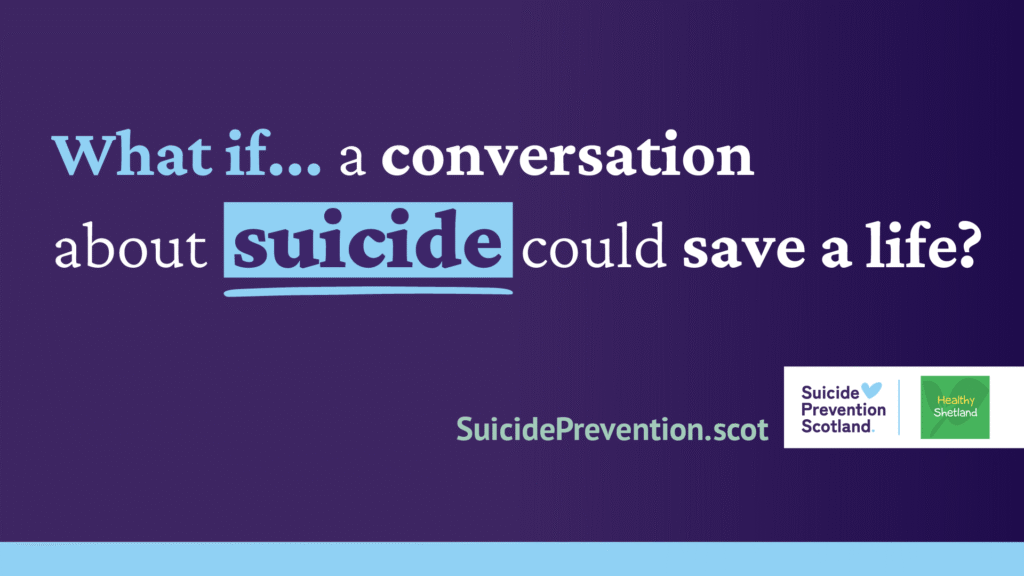
On 10th September every year, organisations and individuals from around the world get together to raise awareness around suicide prevention. Suicide Prevention Awareness Week takes place from Sunday 7th September to Saturday 13th September 2025, with Suicide Prevention Awareness Day falling in the middle. It is a good prompt to start conversations around suicide prevention and start changing the narrative on how we speak about it. This year’s theme of “changing the narrative” focuses on shifting from a culture of silence and stigma to one of openness, understanding and support.
It can be really scary to start a conversation with someone about suicide, and often people are afraid that they will put that thought in someone’s head. Some people are worried that they will use the wrong words, or that they will react in the wrong way. There is so much stigma around suicide – what if… we were able to spot the signs someone is thinking of suicide, and what if….we were able to learn how to start that conversation?
Look out for the signs:
Thoughts of suicide can be scary and confusing, but 1 in 5 of us will experience them at some point so they are more common than we might think. Because of how complex they feel, it can be tricky for someone to speak about how they feel, so it’s important we look out for the signs:
- Distancing themselves or not replying to messages
- Talking about feeling worthless, hopeless or trapped
- Not doing the things they usually enjoy
- Finding day-to-day tasks difficult
Reach out to anyone you’re concerned about
If you’re worried about someone, ask them how they are feeling and show that you care. Once someone starts to share how they’re feeling, it’s important to listen, without judgement. Ask how they’re doing, using open questions that need more than a yes or no answer, such as “How do you feel?” or “What’s that like for you?” Try not to jump in with your advice or opinions.
Don’t be afraid to ask someone if they’re having suicidal thoughts. People with lived experience of feeling suicidal have often said it is a relief to talk about thoughts they are experiencing. Just being there to listen and showing you care can help.
Let them know support is available
Perhaps you have a friend or family member who is struggling to cope, and you don’t know how to support them. Or maybe you’ve noticed that someone is acting differently and want to check if things are OK. Let them know that you’re here for them and that if they’re going through a tough time, they can turn to organisations for support too.
Ditch the stigma
1 in 5 of us may experience suicidal thoughts, which would be 20% of our community. The more open and honest conversations we have about suicide, the more chance we have of breaking down the stigma around it. There are several training resources that can help us to learn how to start and have those conversations.
🧠 Applied Suicide Intervention Skills Training (ASIST)
- Free 2-day face-to-face workshop
- Learn practical skills to recognise and intervene when someone may be at risk
- Next workshop: Yell, 13–14 September 2025
- Book via Mind Your Head: mindyourhead@shetland.org
- Further workshops will be offered throughout 2025/26 – keep an eye on our social meda.
🧠 Scotland’s Mental Health First Aid (SMHFA)
- 2-day in-person course to support others through mental health challenges
- Next course: Lerwick, 6–7 October 2025
- Cost: £210 per person
- Book via Chris Grant – www.chrisgrantgla.com/courses
💻 Online Learning: Ask, Tell, Respond / Ask, Tell, Save a Life
- Build confidence to have supportive conversations and learn how to get help
- Developed by Public Health Scotland and NHS Education Scotland
- Available on TURAS (free account required)